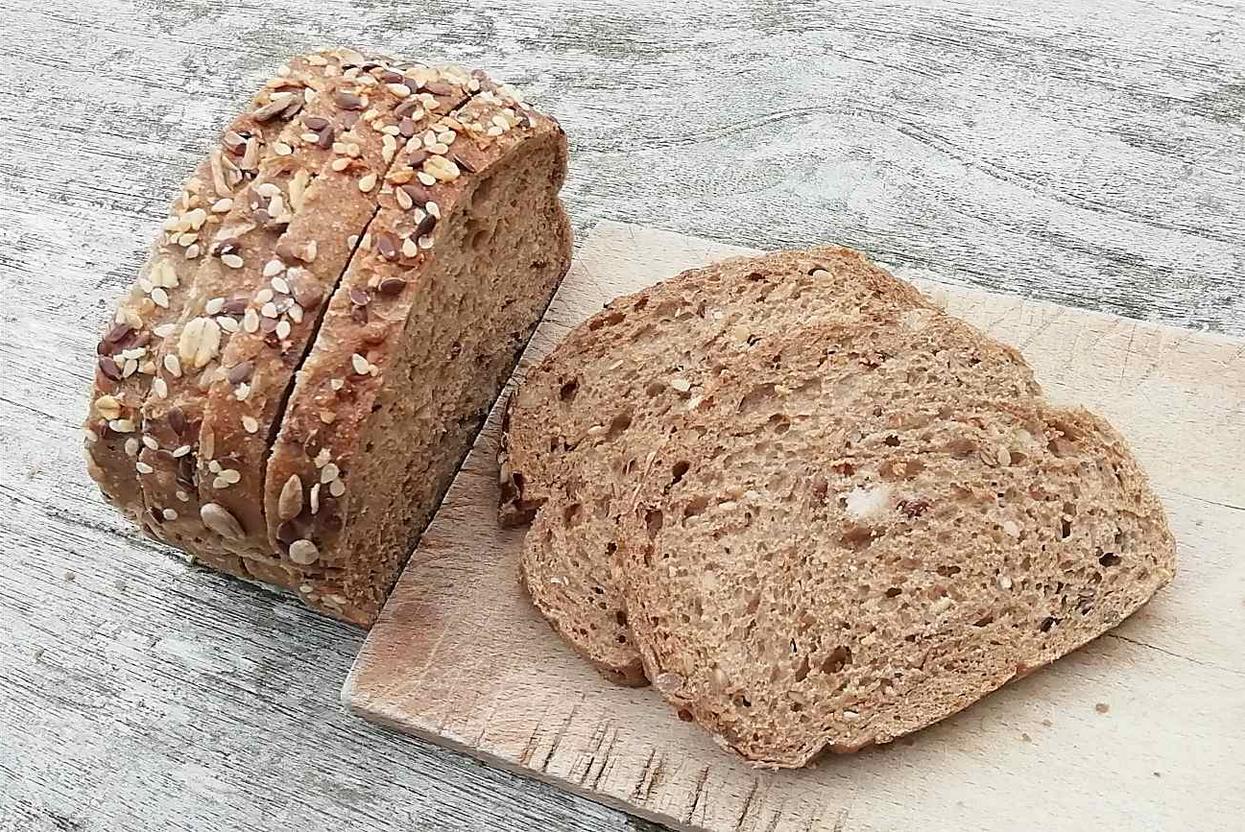Eating well: the main principles of good nutrition
Eating well is essential to staying healthy and aging well. In this sheet, you will discover the main principles of food, basic nutritional needs, how our body assimilates food, the benefits of good food, how to eat well in practice, how a consultation with a nutritionist takes place and finally, how to practice in this field.
How to eat well?
The vast majority of food specialists, whether or not they are from the official milieu, agree on a certain number of principles that can serve as guides, here they are:
A balanced diet: it is advisable to choose foods from the different food groups: vegetables and fruits (half of the plate), cereal products (quarter of the plate), meats and alternatives (l another quarter), to which we will add a calcium intake, by consuming dairy products, for example. Thus, your meal will contain: a good dose of carbohydrates, enough protein and little fat.
Eat well

Eating well: the main principles of good nutrition
Eating well is essential to staying healthy and aging well. In this sheet, you will discover the main principles of food, basic nutritional needs, how our body assimilates food, the benefits of good food, how to eat well in practice, how a consultation with a nutritionist takes place and finally, how to practice in this field.
How to eat well?
The vast majority of food specialists, whether or not they are from the official milieu, agree on a certain number of principles that can serve as guides, here they are:
A balanced diet: it is advisable to choose foods from the different food groups: vegetables and fruits (half of the plate), cereal products (quarter of the plate), meats and alternatives (l another quarter), to which we will add a calcium intake, by consuming dairy products, for example. Thus, your meal will contain: a good dose of carbohydrates, enough protein and little fat.
A varied diet: to reach the necessary range of nutrients and avoid deficiencies, it is necessary to consume not only foods from each food group every day, but several foods from each group.
Fresh and good quality food: fresh and local food is recommended. Refined products and hydrogenated fats should be avoided.
Eat in reasonable quantities: excess weight promotes the appearance of many diseases, and considerably reduces life expectancy. A slightly low-calorie diet (but without nutrient deficiencies) maintained over the long term could help prevent certain cancers and increase longevity. In addition, it limits oxidation and prevents clogging. An example of an adjustment: systematically reduce, by a quarter or a third, the portions of foods high in calories (pasta and rice, for example) and replace them with a nutritious food and low in calories, such as a vegetable.
Tasty food: in the first place, it is the flavor that determines our food choices. If so many people give up on a diet, it's because it doesn't give them pleasure. However, the high salt, sugar and fat content of processed foods seems to be more and more appreciated and is even, among young people, becoming the norm. To counterbalance the attraction of these dishes, you have to treat yourself to healthy foods that you particularly appreciate and prepare them in a tasty way - using, in particular, fine herbs, many of which are a good source of nutrients. .
Eating mindfully: by taking your time and savoring each bite, mindful eating is an effective technique for learning to rediscover the flavors of food, while reducing the proportions of food absorbed during a meal.
Adopt chrono-nutrition: chrono-nutrition consists of eating in a certain way according to the different times of the day. For example, it is advisable to eat fat in the morning, dense at noon and light in the evening. In the long term, this technique allows you to regain your healthy weight and improve your state of health.
Managing your meals: for optimal nutritional intake and avoiding weight gain, it is essential to be organized. Indeed, unbalanced meals are often due to improvisation, which is why it is recommended to plan the evening before the content of breakfast and each morning what the meals of the day will consist of.
Be careful when cooking: to retain all the benefits of food, it is best to cook at a low temperature below 100°C because the high temperature distorts the properties of food. Grilling, which contains a lot of free radicals, should be limited. The microwave should also be avoided because it distorts the chemical form of food.
Eating well: basic nutritional needs
The basic nutritional needs to know can be divided into two categories that we will develop below: macronutrients (proteins, lipids, carbohydrates) which provide energy, and micronutrients (vitamins, trace elements, etc.), which are essential for the assimilation, transformation and proper use
Macronutrients
The proteins
are essential for a balanced diet. They help the proper functioning of the organs thanks to the amino acids of which they are made: isoleucine, leucine, lysine, methionine, phenylalanine, threonine, tryptophan, valine. Our cells need these eight essential amino acids and the absence of just one of these amino acids blocks protein synthesis, essential for the reconstruction of our DNA.
Lipids
Are the basis of the manufacture of all our cells, our hormonal system, and all our cell membranes. They provide the energy necessary for the functioning of the body and regulate multiple physiological functions. The omega 3 contained in food are essential for a good diet. You have to know how to choose your oils with quality fatty acids rich in monounsaturated (olive oil) and polyunsaturated (rapeseed oil) fatty acids.
Carbohydrates
are just as essential to bring energy to our body. Food sources of carbohydrates are starchy foods (cereals, legumes, potatoes, rich in starch), green vegetables, sweet products and fresh and dried fruits. The three types of carbohydrates are: simple sugars, complex sugars and fibre. It is best to avoid white sugar and brown sugar which are refined and addictive. These are present in sweets, confectionery and sugary drinks.
Micronutrients
Today's diet is increasingly poor in micronutrients, because cultivation methods (use of pesticides, fungicides, etc.), food extraction methods (refining, high temperatures), cooking methods ( microwave, frying) and preservation methods destroy these micronutrients. These cannot be produced by the body and must therefore be provided by a varied, balanced and good quality diet.
Essential to the body, their deficiencies create imbalances which are responsible for a large number of symptoms (inflammation, sleep disorders, memory disorders, mood disorders, digestive disorders). In addition, they protect us from free radicals.
The major antioxidant vitamins are vitamins AE, C, which are contained in fruits, vegetables, green tea...
- Vitamin A tones the eye area.
- vitamin c helps the body to manufacture collagen, which ensures the cohesion, elasticity and regeneration of connective tissue. It also has an action on the immune system and is present in the liver, brain and endocrine glands.
- vitamin E contained in vegetable oils plays an important role on the membrane of the intestines, therefore at the level of the digestive process. Powerful antioxidant, it works in synergy with vitamin C.
As for other vitamins, the B vitamins are useful for the nervous system, vitamin D is involved in hundreds of functions in the body, vitamin K is essential for normal blood clotting and plays a role in bone consolidation.
Care should be taken not to consume too many cereals and legumes, which in large quantities cause maldigestion and block the assimilation of nutrients due to the anti-nutrients they contain (lectins, phytates, saponins, etc.).
The assimilation of food
Digestion begins in the mouth and isn't even complete 2 days later. During this process, countless chemical transformations take place in which various enzymes and several organs collaborate. In addition, many personal characteristics influence the way in which our body assimilates nutrients: age, state of health, food allergies or intolerances, the amount of fatty tissue, the reserves of nutrients in the body, the type work, physical activity, quality of sleep, tobacco use, emotional and nervous state, time of eating, posture during meals, etc.
The process of assimilation is so complex that, since time immemorial, all sorts of approaches have been advocated that are supposed to be better suited to our digestive system: vegetarianism, the choice of food according to one's blood group, the acid-base balance, food combinations, raw food, various diets (Montignac, Pritikin, Kousmine method...), without forgetting Chinese dietetics, Ayurvedic food, etc. In addition, public health agencies in most countries publish official food guides that are constantly evolving. But, even today, specialists do not agree among themselves and new food hypotheses appear regularly.
The benefits of a good diet
The list of benefits of a good diet is long, depending on the environment, the emotions, the source of food, the method of cooking, the physiology of the individual and his ability to assimilate nutrients, including among them :
Maintain acid base balance
As we age, the tissues tend to acidify, which has the effect of demineralising them. The liver is the most important deacidifying organ. According to most specialists, the white sugars contained in pastries, sweets, meats, sausages, preserves, industrial drinks and many other foods are acidifying if abused. This is why it is essential to balance your diet with alkalizing foods (such as minerals), and to oxygenate the tissues by practicing physical activity.
Optimize digestion
Some tips help digestion, such as taking the time to sit down during a meal (avoiding eating in front of the computer or television). Chewing in full consciousness allows the brain to transmit the feeling of satiety, and the digestive system to ensure its functions of salivary secretion in order to make the crushed food more assimilable.
Protect the intestinal ecosystem (or microbiota)
The intestinal ecosystem requires a nutritional and emotional balance in order to be optimal. It is made up of our intestinal flora, but also "friendly" bacteria, which ensure good digestion, contribute to the immune system and act on multiple functions in the body (appetite, assimilation of nutrients, etc.). In order to multiply, they need fibre, polyphenols, omega 3 fatty acids and vitamin D.
Avoid fatigue and food compulsions
Avoiding snacking helps to ensure the proper functioning of our biological rhythm (circadian). This helps regulate blood sugar and the entire metabolism to avoid fatigue and sudden cravings for food.
Preserve our liver with a light and easy to digest diet
This therefore consists of limiting foods that are too fatty, overcooked, too sweet, and alcohol. Favor a diet devoid of toxins and pollutants that can slow down the metabolism and make it sick.
Fight against certain cancers
Certain foods such as turmeric, green tea and pepper reduce the risk of developing certain cancers. On the other hand, excessive consumption of meat promotes the appearance of colorectal cancer.
How to eat well in practice?
There are 7 major food families, all essential to a balanced diet:
Meat/fish/eggs
This family contains eggs, charcuterie, seafood, meats... These foods mainly provide proteins and lipids as well as certain vitamins essential to the functioning of the nervous system and the mineralization of bones (B1, B2 , D).
Milk and dairy products
In this family, we find yogurts, cheeses and of course milk. These products provide proteins, lipids, calcium, phosphorus as well as vitamin A, D, B2 and B12. They are therefore mainly involved in the construction of bones. At too high a dose, dairy products can promote the appearance of prostate cancer.
Fruits and vegetables
Dried fruits, oilseeds, frozen, fresh vegetables... The products of this family are very rich in water, which allows the body to stay hydrated. They provide carbohydrates, vitamins (A and C), calcium and dietary fiber, which contribute to good digestion.
fatty substances
This family contains the most caloric foods: butter, margarine, oil... They provide energy, vitamins (A, D, E) as well as omega 3 and omega 6.
Sugar and sweet products
Comprising mainly carbohydrates and minerals (magnesium), sweet products provide energy. Even if they provide a lot of pleasure, it is advisable not to abuse them because they do not have a very important nutritional interest.
The drinks
Our body is made up of more than 60% water. It is the basis of a healthy diet because it helps to dilute the acids in the body. Good hydration is essential for good physical shape and for cleansing the body. Specialists consider that an adult should drink between 1.5 and 2 liters of water per day, i.e. 4 to 6 glasses of water, light tea, herbal tea, soup, or even more depending on ambient heat and activity. physical.
Cereals and starches
Rice, pasta, breads, potatoes... Foods belonging to this category satisfy the feeling of hunger and provide a lot of energy. They contain protein, carbohydrates, magnesium, iron, dietary fiber and vitamin B.
A few tips in practice:
- It is preferable to consume the fruits outside meals (ideal between 5 p.m. and 6 p.m.) to avoid intestinal fermentation.
- Favor white bread: in white flour, only the central part of the wheat seed (the starch) is preserved. It is therefore preferable to eat bread with semi-wholemeal flour, which contains more vitamins and minerals. Even better, bread with "natural sourdough", which allows better assimilation of food.
- Try the Mediterranean diet: it consists mainly of semi-complete or complete cereals, olive oil, starches (pasta, rice, potatoes), legumes, green vegetables (5 to 15 varieties), sheep's or goat's cheese, fruit and a little butter. Oilseeds (walnuts, hazelnut almonds), condiments and herbs (garlic, turmeric, onion, thyme, savory, herbs, sweet spices) are added very regularly. Proteins are provided mainly by poultry fish eggs and rarely beef or lamb. Very few sweets. Wine is consumed regularly but moderately. The herbal teas are regular, and the coffee exceptional.
Nutrition specialist: nutritionist, naturopath or doctor
The nutrition specialist can be a naturopath, nutritionist or doctor.
How is an appointment with a nutritionist?
Although the basic nutritional needs are similar for all human beings, an optimal diet will differ for each person and the ideal diet does not exist. Given the real complexity of nutrition data, it can therefore be useful for most of us to periodically consult a competent person, capable of determining our needs and guiding us in the best nutritional choices.
This is the role of the nutritionist and the naturopath. As far as naturopathy is concerned, this practice aims above all to stimulate the body's natural self-healing mechanisms. First of all, the specialist will have to find where the patient's problem comes from. First, he will therefore administer a questionnaire to his patient in order to know his history (anamnesis), his background (the field, childhood), his lifestyle and his eating habits. Secondly, he will precisely identify the signs and set up the monitoring program. Wise advice, personalized and based on natural means generally makes it possible to solve the patient's problem.
Become a nutrition expert
Nutrition experts who have received a university education and who are part of a professional order have the reserved title of nutritionist, dietitian or dietitian (the designation varies according to the country). However, other health professionals, such as naturopaths, have very good knowledge on the subject. Indeed, training in naturopathy contains courses in medicine, anatomy, biology. In France, there are training courses in naturopathy in about ten schools but the profession of naturopath is not yet regulated. This is why it is best to check that the school is approved by the French Federation of Naturopathy (FENAHMAN)





